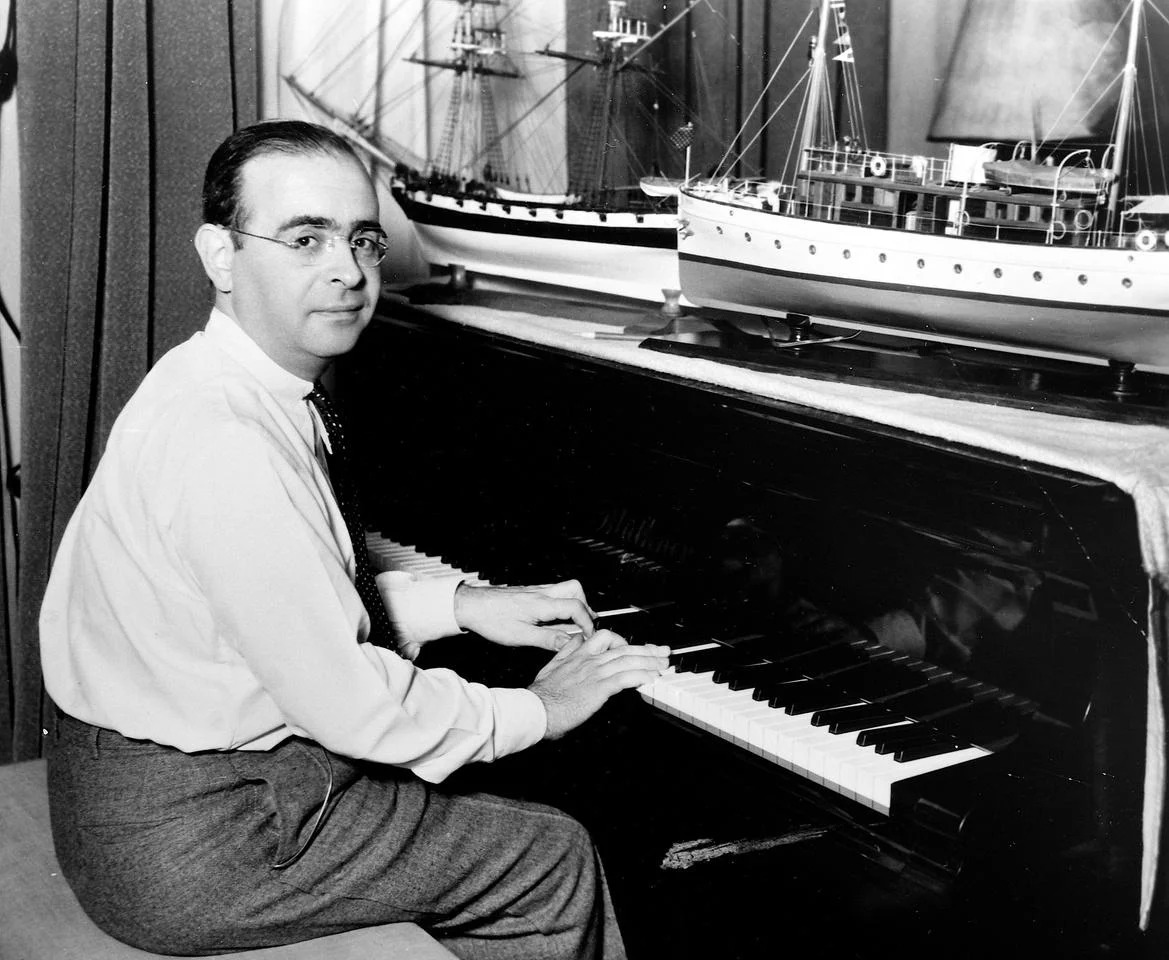
Max Steiner: Maestro of Movie Music tells the story of one of the pioneering composers in developing the Hollywood sound.
“Steiner is the individual who seemed to convince all of Hollywood that films needed scoring.” – Leonard Maltin
Steiner was both a master of the leitmotif, melodic themes, and an ability to musically catch the action as it happens on screen. This is what people refer in the industry as Mickey Mousing. He is credited for composing over 300 feature films, including King Kong, Casablanca, Gone with the Wind, Jezebel, Little Women, Cimmaron, The Searchers, A Summer Place, and many more. He would receiving 24 Academy Award nominations, winning three. While he grew up in a musical household, film composing wasn’t a thing of the time. Operettas were quite popular. And yet, Steiner was there as the Hollywood was being developed alongside Erich Wolfgang Korngold, Alfred Newman, and Miklós Rózsa. If you’re a John Williams fan, his music certainly wouldn’t be what it is without the likes of that generation. Thank you, Max!
The documentary covers the composer’s life thoroughly. Director/editor/co-writer Diana Friedberg weaves in contemporary interviews with stills, performances, film clips, and archival clips of Steiner himself. This is in addition to Lionel Friedberg’s narration and Ray Faiola performing as Steiner’s voice. Before moving into Steiner’s legendary film career, we go back to where it all begin in Vienna. This is where we learn about his grandfather, Maximilian Steiner, who had instrumental in persuading Johann Strauss II to go into theater. Not only this but we was a manager of the Theater an der Wien in Vienna. The historic theater is still standing today. Steiner’s father, Gabor, was very encouraging of his young son’s love for music–young Max conducted an operetta at 12 years old.
The composer made his way to America, finding a home in Broadway in 1914. But sooner than later, Hollywood would come calling. This would come in 1929 in the form of RKO. Steiner’s first feature film score was for the Oscar-winning Western, Cimmaron. However, it was 1933’s King Kong that would forever chance film scoring as we know it. What Steiner did with that film showed how music could make such unrealistic movies feel so realistic. He added themes for characters, which also enabled audiences to connect with them. Like I said, if you’re a John Williams fan, you owe something to the likes of Steiner.
Steiner went from RKO to Selznick International Pictures. Unfortunately, the composer had a fallout with the producer. He would resign and get a job offer with Warner Bros. Pictures. It’s at Warner Bros. where Steiner would score 140 films. He composed two scores in a period of six weeks when necessary. Not many composers could accomplish what Steiner was able to do. It’s probably a great credit to his family’s workhorse background, if you wish to call it that. Anyway, Steiner stayed at WB for 30 years and set the gold standard in scoring film music. While he wrote many scores in a factory-like setting, they were for many genres. You name a major Warner Bros. player and Steiner likely wrote many scores for their films. Late in life, he would compose A Summer Place and it would be a surprise hit, winning at the Grammy Awards.
An interesting tidbit from the film is that Steiner chose not to take a title credit for Confessions of a Nazi Spy. The reason for this is fearing repercussions for family remaining in Europe due to Jew-hatred. Speaking of which, his father, Gabor, had seen the rising hate in Vienna years before in the late 1800s. This more or less forced the elder Steiner to baptize both himself and his son at a Protestant church in 1894. I’m not sure about you but I had always assumed that Steiner was Jewish. His mother had previously converted to Judaism from Catholicism. According to the film, he never discussed his Jewish roots with anyone. But despite this, the Warner Bros. payroll officer would deduct money and give them to Jewish charities at Steiner’s request.
His health would start failing him in the late 1960s. His eyesight certainly did no favors as it makes it hard to write. The Hollywood Walk of Fame would posthumously honor him with a star on Vine Street in 1975. Regrettably, I didn’t think to take a photo of it when I walked down Vine in 2019. Today, the Max Steiner Collection resides today at Brigham Young University in Provo, Utah. Vienna honors him today through the Max Steiner Film Achievement Award. This takes place during the annual Hollywood in Vienna gala.
Leonard Maltin says it the best as the film concludes:
“If you’re tracking the history of American film, Max Steiner’s name has to be included along with the great directors, the great writers, the great cinematographers, the great actors. He is on that same pedestal because he worked on these incredible movies that are still shown and loved around the globe. He will never be forgotten.”
As Max Steiner: Maestro of Movie Music clearly shows, Hollywood owes a debt of gratitude to the great Max Steiner–film scoring is not what it is today without the father of film music.
DIRECTOR: Diana Friedberg
SCREENWRITER: Lionel Friedberg, Diana Friedberg
NARRATOR: Lionel Friedberg
MAX STEINER VOICE: Ray Faiola
FEATURING: Leonard Maltin, Jon Burlingame, Robert Townson, Joe Rinaudo, Scott Lasky, Stan Taffel, Ken Rosen, Michael Feinstein, Steven C. Smith, Nathan Platte, James D’Arc, Peter Wegele, John Morgan, William Stromberg, Daniel Mayer Selznick, Eleanor Slatkin, Hugo Friedhofer
Zepra International released Max Steiner: Maestro of Movie Music released in theaters on November 1, 2019. Grade: 5/5
Please subscribe to Solzy at the Movies on Buttondown.




